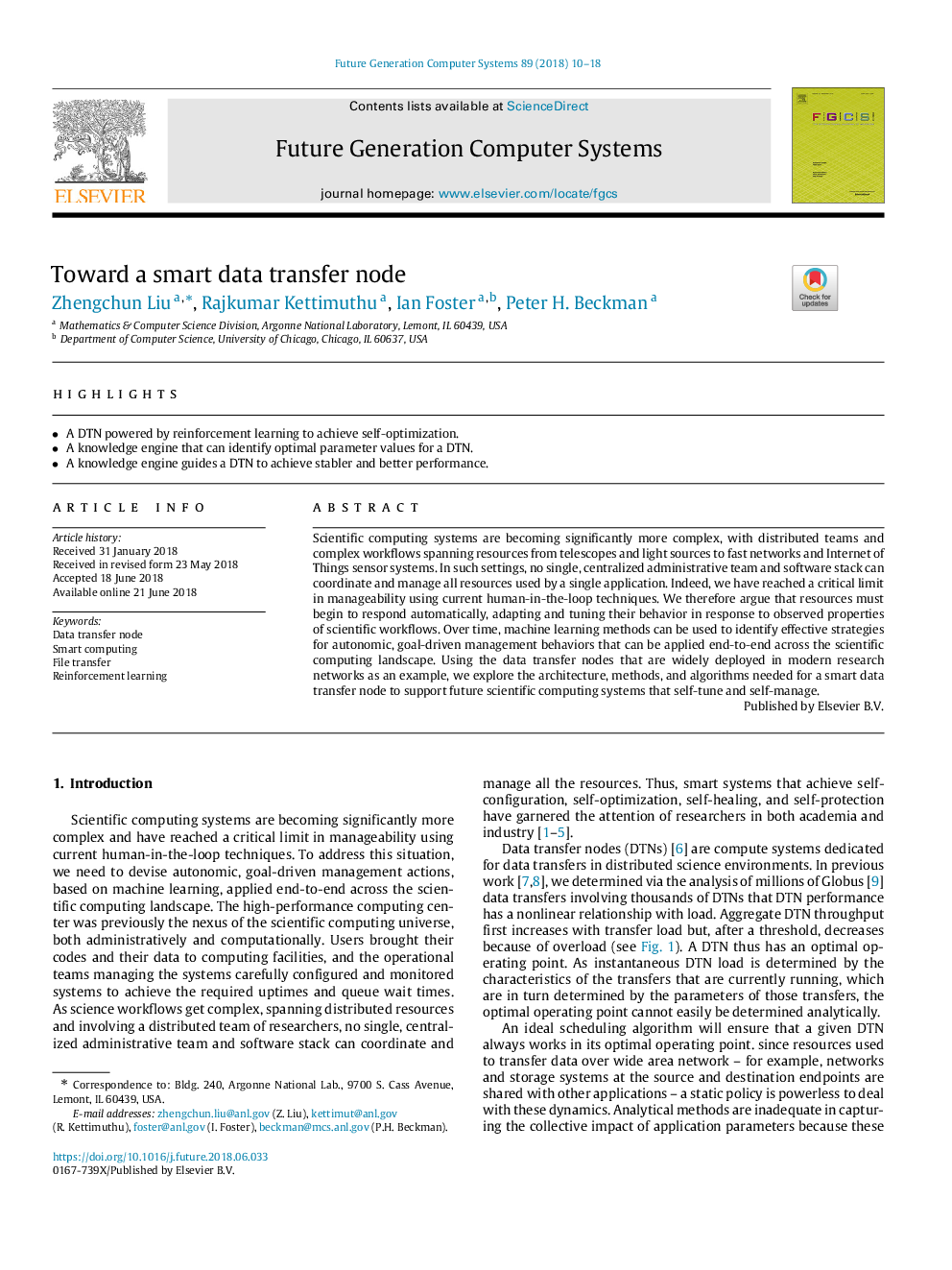| Article ID | Journal | Published Year | Pages | File Type |
|---|---|---|---|---|
| 6872783 | Future Generation Computer Systems | 2018 | 9 Pages |
Abstract
Scientific computing systems are becoming significantly more complex, with distributed teams and complex workflows spanning resources from telescopes and light sources to fast networks and Internet of Things sensor systems. In such settings, no single, centralized administrative team and software stack can coordinate and manage all resources used by a single application. Indeed, we have reached a critical limit in manageability using current human-in-the-loop techniques. We therefore argue that resources must begin to respond automatically, adapting and tuning their behavior in response to observed properties of scientific workflows. Over time, machine learning methods can be used to identify effective strategies for autonomic, goal-driven management behaviors that can be applied end-to-end across the scientific computing landscape. Using the data transfer nodes that are widely deployed in modern research networks as an example, we explore the architecture, methods, and algorithms needed for a smart data transfer node to support future scientific computing systems that self-tune and self-manage.
Related Topics
Physical Sciences and Engineering
Computer Science
Computational Theory and Mathematics
Authors
Zhengchun Liu, Rajkumar Kettimuthu, Ian Foster, Peter H. Beckman,
